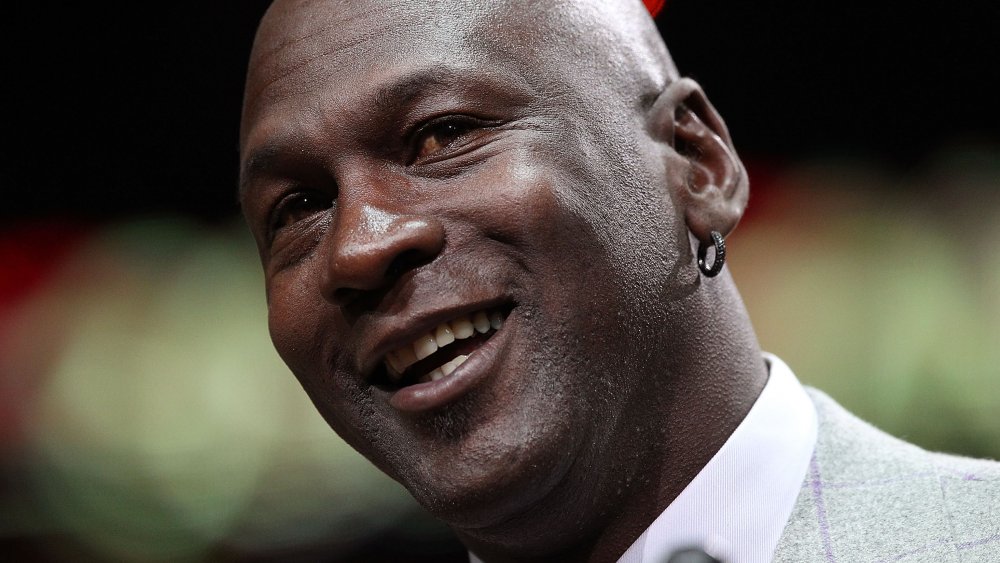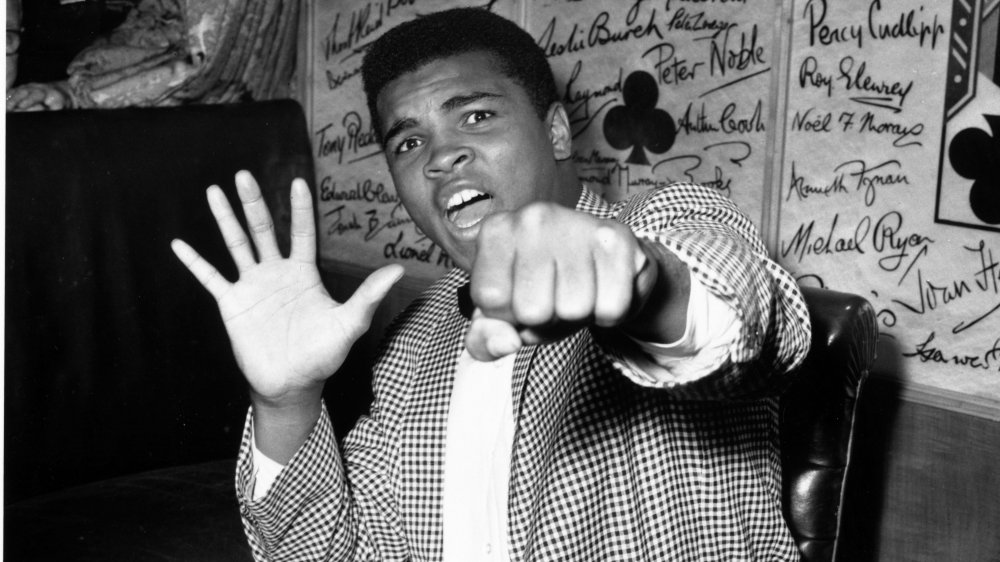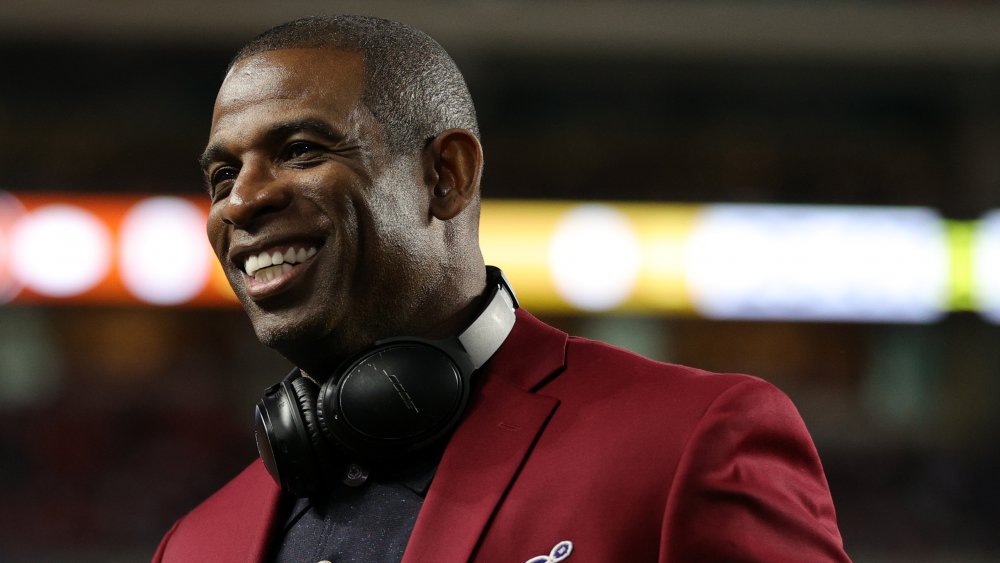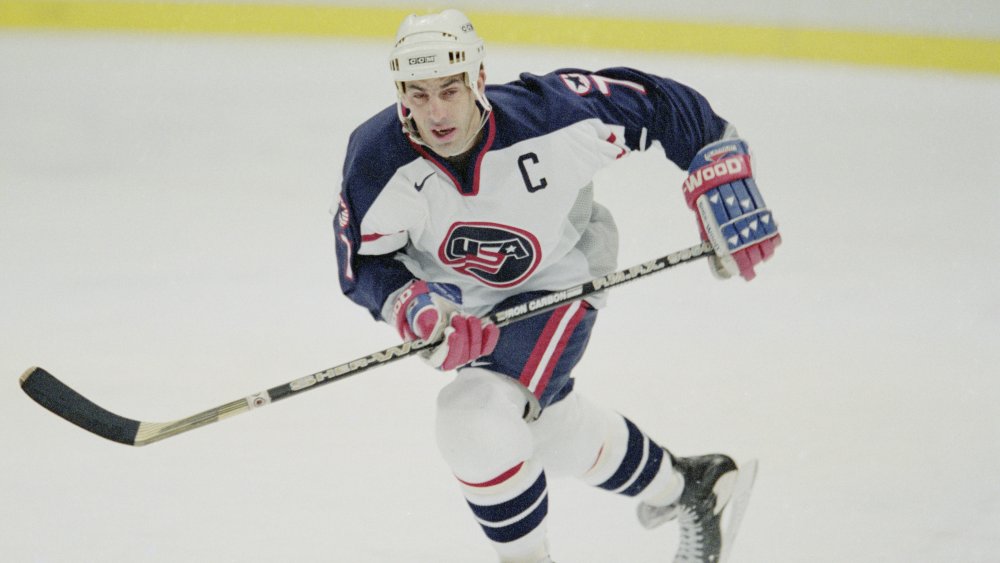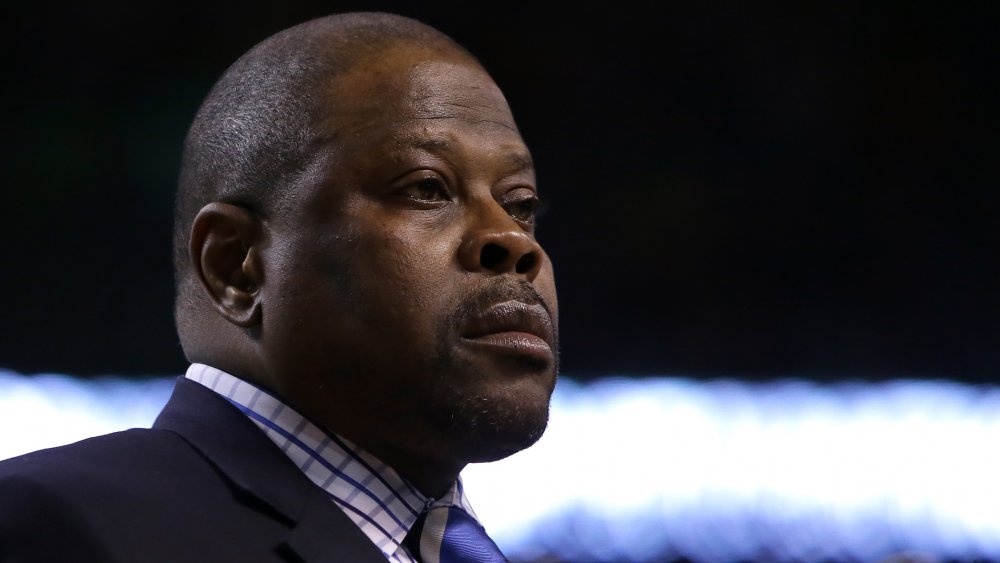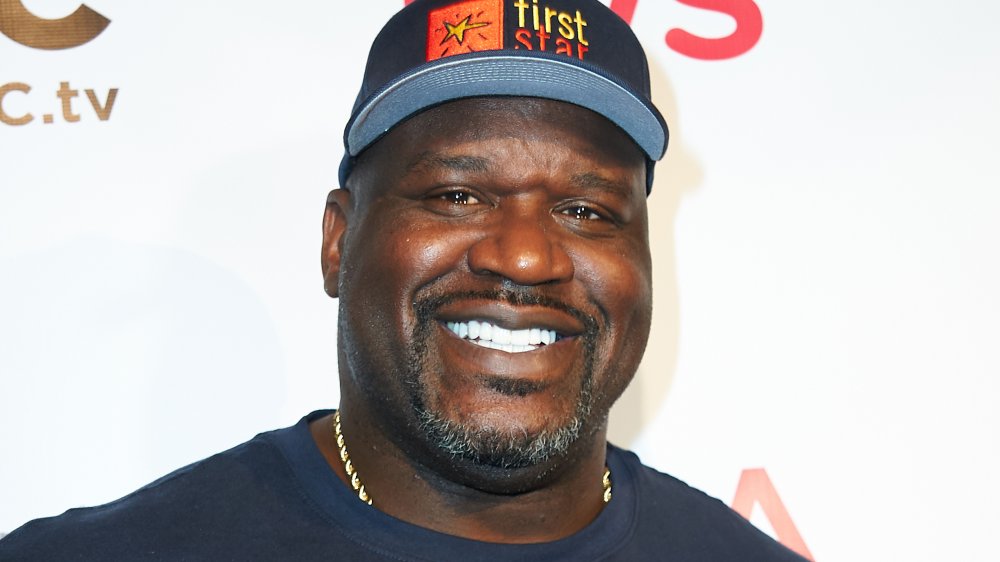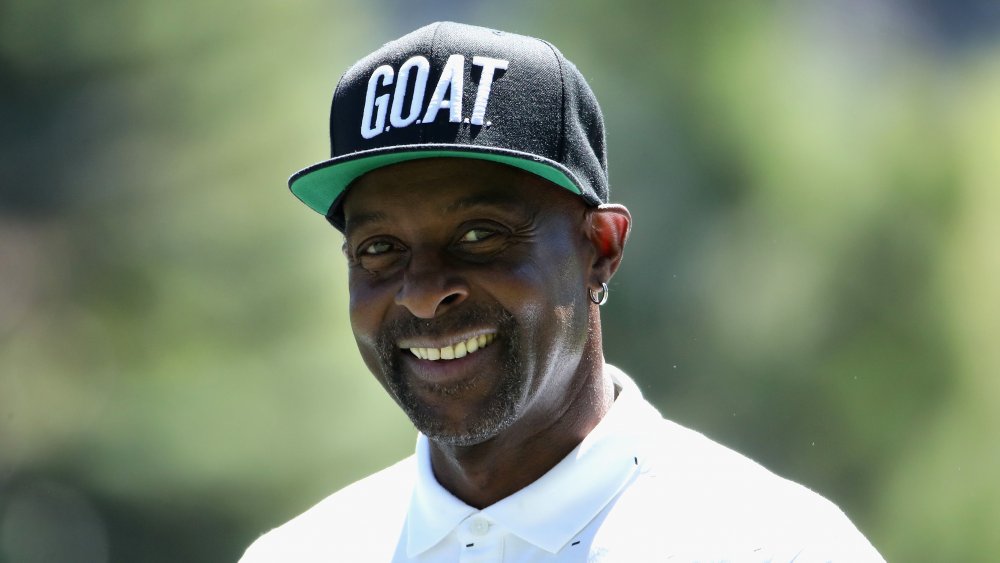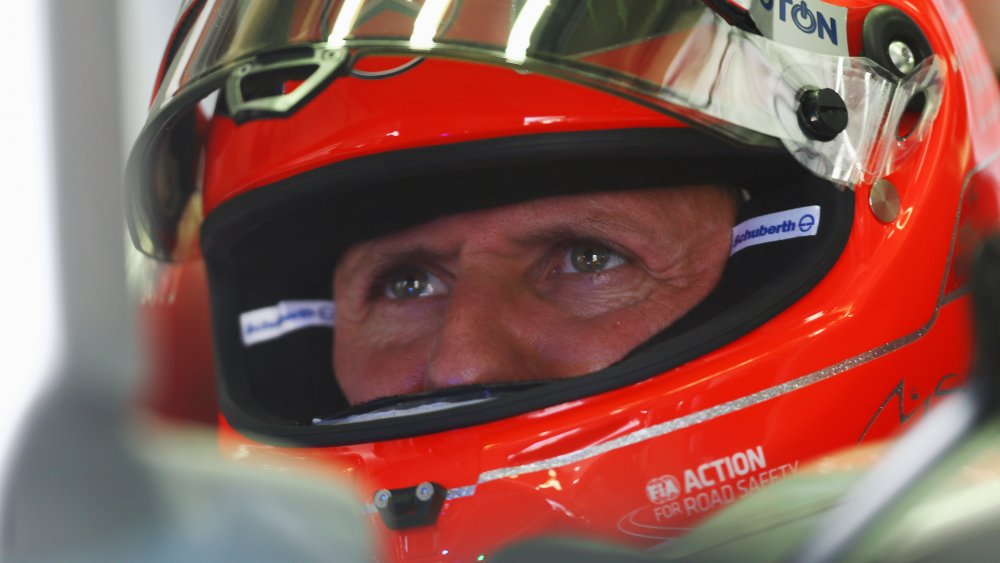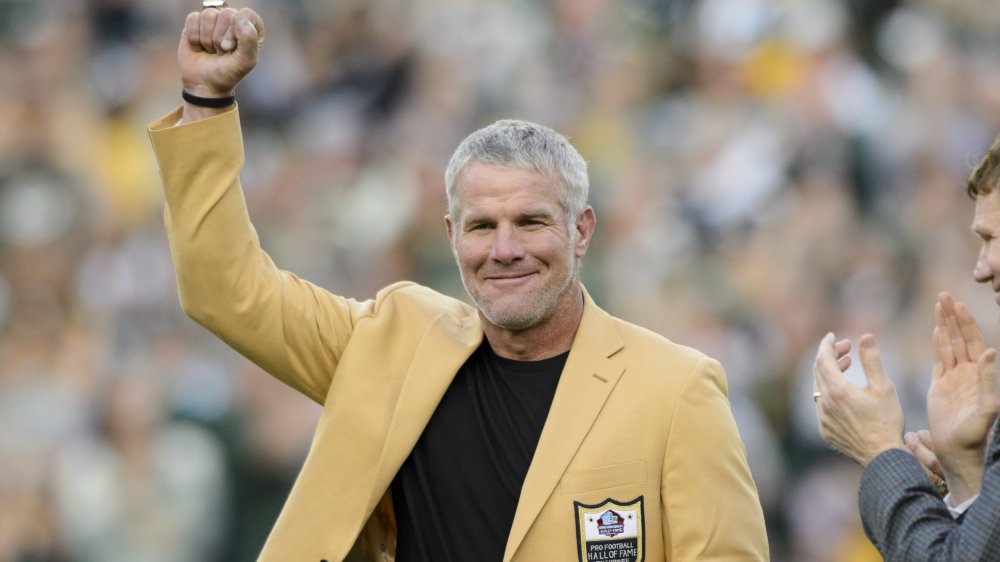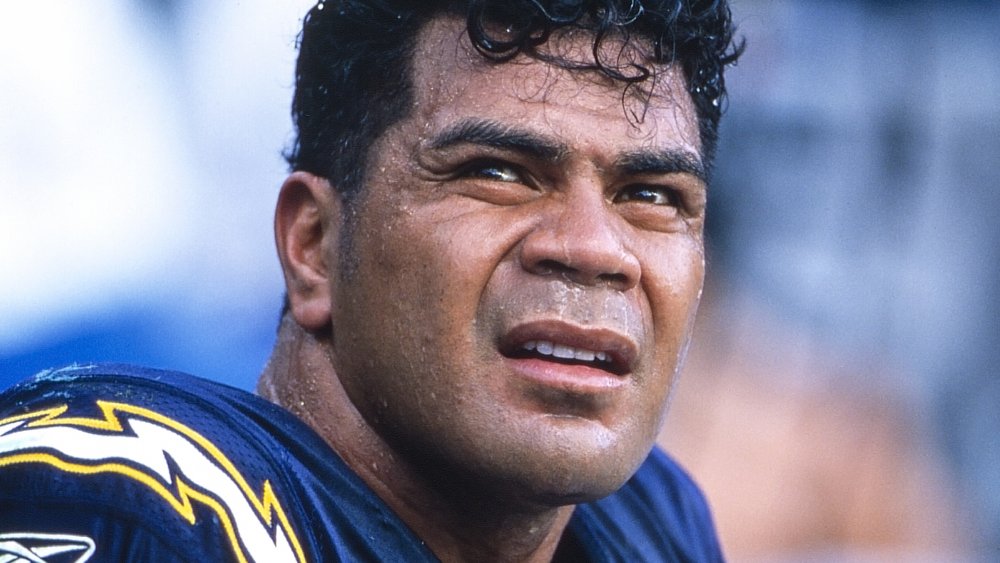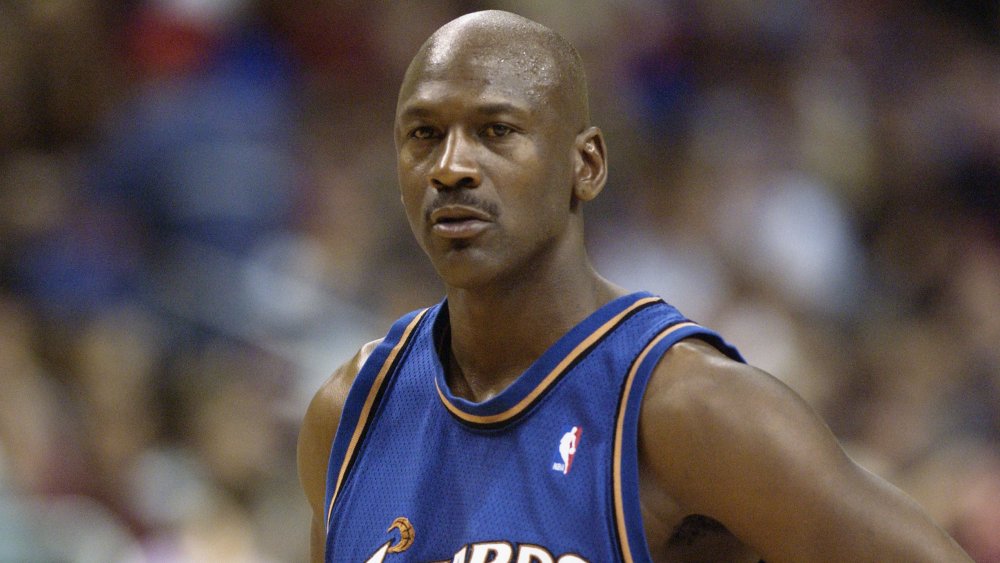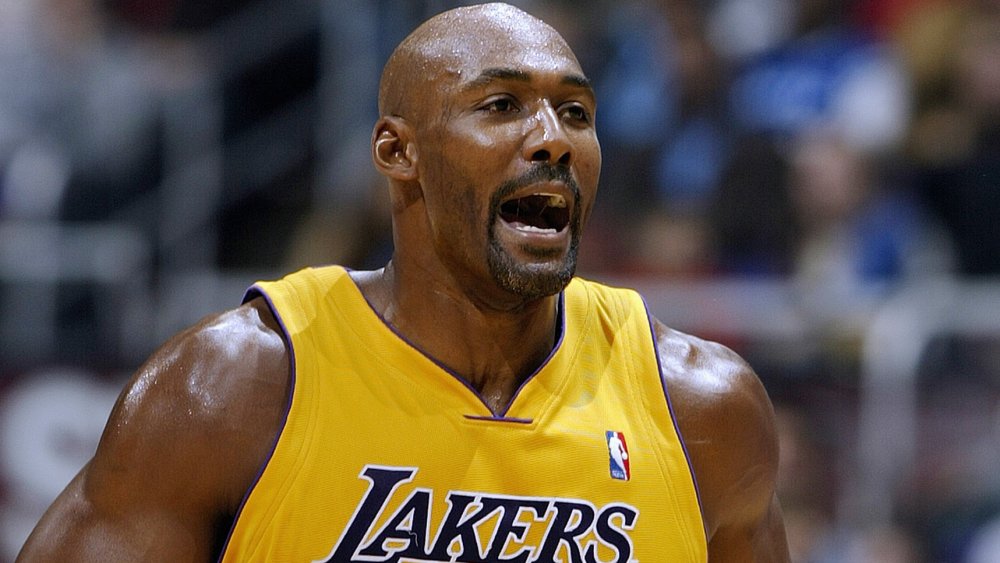Famous Athletes Who Retired Too Late
While speaking about quarterback Tom Brady's long run with the New England Patriots in 2019, trainer Alex Guerrero told Boston's WEEI-FM, "Every year he just adds another year. He goes in, he's like, 'Guys, I just feel so good still. I think I am going to go until 45.' I am like, 'OK.' Now he's like, 'Alex, I think I can go like 46 or 47.'" The following year, Brady signed a two-year, $50 million deal with the Tampa Bay Buccaneers at the age of 43 after 20 years with the Patriots.
Will Brady replicate the success he had in New England — six Super Bowl wins — with the young Buccaneers? Probably not. But if he does, he'll be the exception and not the rule in the small list of athletes who stayed in the game way too long. While some sports stars enter retirement too soon, due to their competitive nature or their desire to chase the ever-elusive championship, some of the greatest athletes of all time refused to retire even when all signs pointed them to the rocking chair on their front porch.
In most cases, it's sad to watch. Dallas Cowboys legend Emmitt Smith and the NFL's all-time leading rusher in an Arizona Cardinals' uniform? We're still trying to scrub that image from our minds. Here are a few other famous athletes who retired too late.
Muhammad Ali returned to the boxing ring before officially retiring
Float like a butterfly, sting like a bee. Nicknamed "The Greatest," Muhammad Ali is widely considered the best boxer of all time, as well as one of the most significant figures in American history due to his activism. In the ring, he was unmatched. At the age of 22, Ali (then known as Cassius Clay) "shook up the world" by defeating Sonny Liston for his first world heavyweight championship.
Fifteen years later, Ali retired as a three-time champion and a living legend at the age of 37. However, he returned to the ring the following year and suffered defeats at the hands of Larry Holmes and Trevor Berbick. Ali then retired for good in 1981. "He just got slower and older, and it takes a little longer for him to get around now," Holmes said before their fight, per The New York Times. "I noticed that. He don't think as quick anymore."
According to author Jonathan Eig, who wrote the 2017 biography Ali: A Life, the iconic fighter reportedly "took 200,000 punches" and "suffered brain damage far earlier than we thought" (via ESPN). Ali was officially diagnosed with Parkinson's disease in 1984, with Eig explaining, according to CBS Sports, "Ali did damage to himself and he knew it and kept boxing too long, but he didn't have the information we now have about CTE — you don't have to wait until you're middle-aged to stop."
Deion Sanders did not 'dominate' in his post-retirement return to the NFL
As Deion Sanders once said (via Sports Illustrated), "They don't pay nobody to be humble. Some people will come out to see me do well. Some people will come out to see me get run over. But love me or hate me, they're going to come out." The fifth overall pick in the 1989 NFL Draft, cornerback Sanders quickly earned his nickname "Prime Time" for being a lockdown defender and an electrifying returner. During his 11 seasons with the Atlanta Falcons, San Francisco 49ers, and Dallas Cowboys, he won two Super Bowl rings, was selected to eight Pro Bowls, and was named NFL Defensive Player of the Year in 1994. Sanders was simply one of the greatest to ever play the game.
In 2000, Sanders cashed in when the then-Washington Redskins signed him to a 7-year, $56 million contract. He abruptly retired one year later after a subpar season, per The New York Times, and stayed retired for three years before signing a one-year, $1.5 million deal with the Baltimore Ravens at the age of 37. "I prepare to win, I prepare to dominate, I prepare to conquer," Sanders told reporters after his first practice (via ESPN). "I prepare to win it all, and that's one of the reasons I'm here."
By 2006, however, Sanders officially retired for good after only starting six games during his tenure with the Ravens and missing the playoffs two years in a row. He was inducted into the Pro Football Hall of Fame in 2011.
Chris Chelios remained 'close to the game' after a 26-season run in the NHL
When Chris Chelios ended his 26-year career in the National Hockey League in 2010, he retired as a three-time Stanley Cup champion and a three-time James Norris Memorial Trophy recipient (given to the league's best defenseman). He also hung up the skates as the only player in league history to play 400+ games with three separate teams — and the most games played ever by a defenseman (via NHL.com).
The vast majority of Chelios' success came during his time with Montreal Canadiens, Chicago Blackhawks, and Detroit Red Wings, but after the 2008-2009 season, the Red Wings decided not to re-sign him. The once-dominant defenseman then saw himself bounce around between the minor leagues with the Chicago Wolves and the now-defunct NHL team, the Atlanta Thrashers, according to ESPN. Not a great end to an illustrious career.
Chelios agreed and officially retired at the age of 48, stating (per NHL.com), "I've been fortunate enough to be a part of this game at the highest level for a long time. I've met a lot of great people and developed some special relationships along the way." The future Advisor to Hockey Operations for the Red Wings added, "The three championship teams I've been lucky enough to be a part of have truly been the highlights of my career. I'm excited for this next challenge to begin and I'm also thankful the Wings have extended this opportunity for me to continue to be close to the game."
Patrick Ewing 'gave it 110 percent' before retiring from the NBA
Patrick Ewing's NBA career has two distinct and different eras — with the New York Knicks and not with the New York Knicks. The first player selected in the 1985 NBA Draft, the 7'0" Georgetown University star manned the center position for the Knicks for 15 years. During his illustrious career with the team, Ewing was named the NBA's Rookie of the Year, was selected to 11 All-Star games, and won a gold medal as part of "The Dream Team," a.k.a. the 1992 Olympics U.S. Men's basketball team.
Once age and injuries caught up to him, Ewing was traded to the then-Seattle SuperSonics in 2000 after playing more games in a Knicks uniform than any other player in history. However, his career never recovered. Ewing averaged 9.6 points during his single season with the team (his career average is 21 points). Then, at the age of 39, he was shipped off to the Orlando Magic, where he started only four games and only averaged a paltry 6 points a game.
By 2002, a 40-year-old Ewing called it a career and officially retired. "A hard hat," he replied after being asked how he wanted to be remembered (via CBS Sports). "A hard nose. The work ethic I brought, I gave it 110 percent. I thought I had a great career. I have no regrets. I wouldn't trade it for anything. I enjoyed every minute." Ewing's No. 33 jersey was retired by the Knicks in 2003, and he was named Georgetown's head men's basketball coach in 2017.
Shaquille O'Neal admitted that 'father time has caught up' with him
Entering the NBA as the first overall pick in the 1992 NBA Draft by the Orlando Magic, Shaquille O'Neal was a force of nature. At 7'1" and 325 pounds, O'Neal was virtually unstoppable during his rookie year, averaging 23.4 points, 13.9 rebounds, and 3.5 blocks while breezing his way to the NBA Rookie of the Year honors.
Four years later, O'Neal joined the Los Angeles Lakers, where he teamed up with superstar Kobe Bryant to win three straight NBA Championships. In 2004, he was traded to the Miami Heat and continued to succeed, helping to bring the franchise its first NBA Championship in 2006. Then the injuries started. A year after hoisting the Larry O'Brien Championship Trophy, O'Neal missed 35 games due to a knee injury. From 2008-2011, O'Neal played lackluster seasons with the Phoenix Suns, the Cleveland Cavaliers, and the Boston Celtics. During his final NBA season, the once-dominant and generational big man played 37 out of 82 games and averaged a pedestrian 9.2 points and 4.8 rebounds.
On June 1, 2011, at the age of 39, O'Neal announced his retirement on social media. "We did it. Nineteen years baby," he said in a video shared on Tout (via ESPN). "I want to thank you very much, that's why I'm telling you first, I'm about to retire. Love you, talk to you soon." O'Neal also told SportsCenter that he was "going to miss everything" about the game, but admitted, "Father Time has caught up with Shaquille O'Neal."
Jerry Rice called his late retirement from the NFL a 'happy day'
Jerry Rice's hat says it all: the greatest of all time. Selected by the San Francisco 49ers in the 1985 NFL Draft, wide receiver Rice spent 16 years with the team and only accomplished the following: three Super Bowl trophies, a Super Bowl MVP award, 13 trips to the Pro Bowl, and two NFL Offensive Player of the Year awards. Oh, and at the time of this writing, Rice is still the league's all-time leader in receptions, receiving yards, and receiving touchdowns.
In the NFL, you normally get rewarded for that by your team releasing you because you're getting paid too much. So after Rice's release from the 49ers in 2001, he joined the then-Oakland Raiders and put up huge numbers his first two seasons. The next two seasons? Not so much. The Raiders traded Rice to the Seattle Seahawks in 2004, where he had one of the worst seasons of his career. After the Seahawks passed on retaining his services, Rice signed a one-year deal with the Denver Broncos, but chose to retire at age of 42 after the season started when he learned he was a backup. Ouch.
"This is a happy day," Rice said during his retirement press conference (via The New York Times). "I think the tears that you see basically is that I have really enjoyed this ride. I'm done. I'm looking forward to the next phase of my life." Rice was inducted into the Pro Football Hall of Fame in 2010 — his first year of eligibility.
Michael Schumacher didn't win a single race during his last three seasons
Michael Schumacher will always be one of the greatest drivers in Formula One history. From 1991 to 2006, Schumacher and his Ferrari ran 248 races, won 91, and stood atop the podium as Formula One champion a record seven times — winning five straight to kick off the 2000s (he holds nine other all-time records). Schumacher's $1 billion in career earnings landed him at the No. 5 spot on Forbes' "highest-paid athletes over the past quarter-century" list. He retired after that amazing run. Great, right?
Well, unfortunately, the German racing driver couldn't stay retired for long. In 2010, Schumacher joined the then-new Mercedes GP team with the idea of picking up where he left off. "After three years I have the energy back and I'm ready for some serious stuff," he told BBC Sport. "I'm very motivated, thrilled, and excited." Unfortunately, the excitement wore off fast. During his three seasons with Mercedes, Schumacher ran 58 races without a single win.
He called quits for good in 2012 at the age of 43. "I have decided to retire at the end of the season," Schumacher said (via The Guardian). "I still feel I am capable of competing against the best but the time sometimes comes to say goodbye and this time it might be forever."
Brett Favre probably should have retired with Green Bay
After a single season with the Atlanta Falcons, where he didn't complete a single pass, a young Brett Favre was traded to the Green Bay Packers. During his 15 years with the team, Favre won three NFL MVP Awards, the NFL Offensive Player of the Award, a Super Bowl, and was named to the NFL's 100th Anniversary All-Time Team. He retired as a Packer and was inducted into the Pro Football Hall of Fame in 2016.
When his Packers career came to an end in 2007, Favre could've easily walked away from the game. However, he stayed in the league three more years. While spending a year with the New York Jets, where his "arm gave out" and ruined a promising season (via ESPN), the quarterback was also involved in a sexting scandal with a Jets employee. Favre joined the Minnesota Vikings, before hanging it up in 2011.
During an interview with WSPZ (via New York Daily News) in 2013, Favre revealed he had severe memory loss due to suffering countless concussions throughout his career. Admitting "that's a little bit scary to me," he went on to call out the league: "I don't see how you can't change with the times and try to protect the players more because of the studies that have come out to what concussions can do. The players, either retired or some of the few players who are either killing themselves or self-destructing, studies have proven some of this is because of concussions."
Junior Seau's NFL retirement ended in tragedy
Junior Seau had a legendary career with the San Diego Chargers (now known as the Los Angeles Chargers). Drafted No. 5 overall in the 1990 NFL Draft, Seau went to 12 straight Pro Bowls after his rookie season, and in 1994, he was named the NFL's Defensive Player of the Year, Man of the Year, and led the team to its first and only Super Bowl appearance, as of this writing.
After 13 spectacular years with the Chargers, they traded him to the Miami Dolphins in 2003. His first year with his new team was great, but the following two were marred by injuries, and Seau's Dolphins career was over seven games into the 2005 season, when he tore his Achilles tendon. He spent the next four seasons with the New England Patriots, and was a defensive captain during their undefeated regular season in 2007. He officially retired in 2010.
Two years later, Seau died of suicide by a self-inflicted gunshot wound to the chest. His autopsy showed no illegal drugs or alcohol in his system, and he did not leave a note. Seau's family donated his brain tissue to the National Institutes of Health — they found that he suffered from CTE (chronic traumatic encephalopathy), a neurodegenerative disease found in people with a history of repetitive brain trauma. "I think it's important for everyone to know that Junior did indeed suffer from CTE," his ex-wife, Gina Seau, told ESPN. "It's important that we take steps to help these players."
If you or someone you know is having suicidal thoughts, please call the National Suicide Prevention Lifeline at 1-800-273-TALK (8255) or text HOME to the Crisis Text Line at 741741.
Michael Jordan was a living legend at the time of his initial retirement
Do we really need to discuss Michael Jordan's time with the Chicago Bulls? He took the NBA on his back into the modern era, holds so many NBA records that it's national news when another player breaks one, and is basically the only reason Nike exists. Jordan's '90s Bulls won three NBA championships in a row — twice. "Air Jordan" are words you probably knew before you knew what words were. We could go on and on.
Jordan retired from the Bulls in 1999 as a living legend. The following year, No. 23 became part-owner and President of Basketball Operations for the Washington Wizards, but the desire to play was too much. Jordan, then 39, came out of retirement in 2002. While the Hall of Famer had his moments with the Wizards (hey, he's Michael Jordan), the franchise never made the playoffs during his two seasons, and he averaged a career-low 20 points a game during his final year in the league (via Sports Illustrated). The shooting guard-turned-small forward retired for the last time in 2003.
Jordan may have retired from playing, but the sports star never retired from the game itself. Since 2010, Jordan has been the majority owner of the Charlotte Hornets (previously known as the Charlotte Bobcats).
Karl Malone would have retired sooner if he'd won a championship
Selected by the Utah Jazz in the 1985 NBA Draft, Karl Malone spent 18 years with the franchise and became a legend. The accolades speak for themselves: two-time NBA MVP, 14 NBA All-Star appearances, two All-Star MVPs, and two Olympic gold medals. During the '90s, along with fellow Hall of Fame teammate John Stockton, Malone and the Jazz gave Michael Jordan's Bulls all they could handle, making the NBA Finals two years in a row. He also jumped to No. 2 on the NBA's all-time scoring list (a record the power forward still holds, at the time of this writing).
In 2003, Malone signed a one-year deal to join Kobe Bryant and Shaquille O'Neal in Los Angeles in an attempt to add the only thing missing from his impressive resume. "That was his desire, to win a ring,” Malone's agent told The New York Times. ”In a perfect world, he would have won the ring in Utah and retired in Utah. That wasn't an option." That championship never came.
After one season with the Lakers, however, Malone chose not to return after Bryant accused him of making inappropriate comments to his wife, Vanessa Bryant. Bryant's agent said the Lakers star felt "hurt and betrayed," while Malone called the ordeal "another Bryant soap opera" (via ESPN). Yikes. Malone officially retired in 2005 after 19 seasons in the NBA. He was inducted into the Basketball Hall of Fame in 2010 and his No. 32 jersey was retired by the Jazz in 2006.

